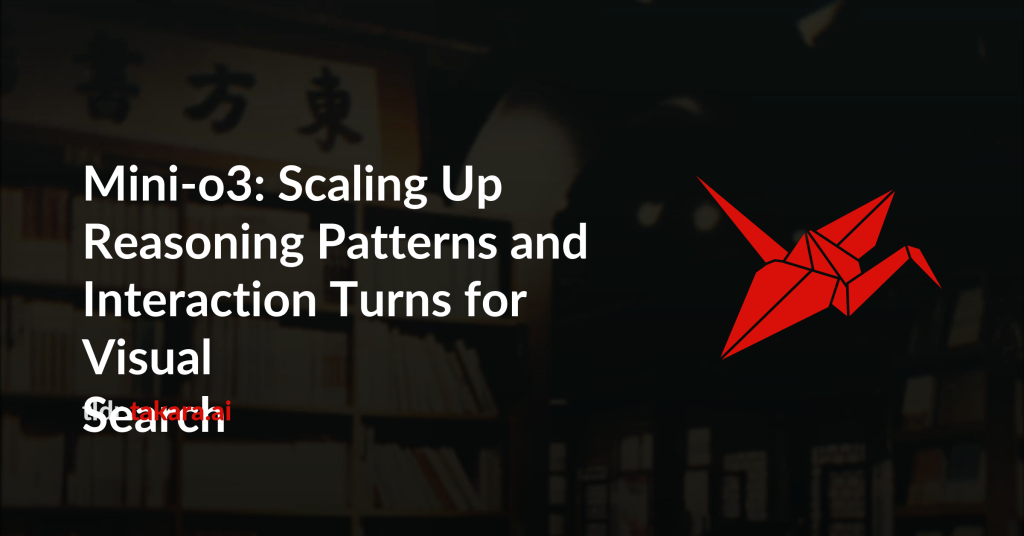Recent advances in large multimodal models have leveraged image-based tools
with reinforcement learning to tackle visual problems. However, existing
open-source approaches often exhibit monotonous reasoning patterns and allow
only a limited number of interaction turns, making them inadequate for
difficult tasks that require trial-and-error exploration. In this work, we
address this limitation by scaling up tool-based interactions and introduce
Mini-o3, a system that executes deep, multi-turn reasoning — spanning tens of
steps — and achieves state-of-the-art performance on challenging visual search
tasks. Our recipe for reproducing OpenAI o3-style behaviors comprises three key
components. First, we construct the Visual Probe Dataset, a collection of
thousands of challenging visual search problems designed for exploratory
reasoning. Second, we develop an iterative data collection pipeline to obtain
cold-start trajectories that exhibit diverse reasoning patterns, including
depth-first search, trial-and-error, and goal maintenance. Third, we propose an
over-turn masking strategy that prevents penalization of over-turn responses
(those that hit the maximum number of turns) during reinforcement learning,
thereby balancing training-time efficiency with test-time scalability. Despite
training with an upper bound of only six interaction turns, our model generates
trajectories that naturally scale to tens of turns at inference time, with
accuracy improving as the number of turns increases. Extensive experiments
demonstrate that Mini-o3 produces rich reasoning patterns and deep thinking
paths, effectively solving challenging visual search problems.

